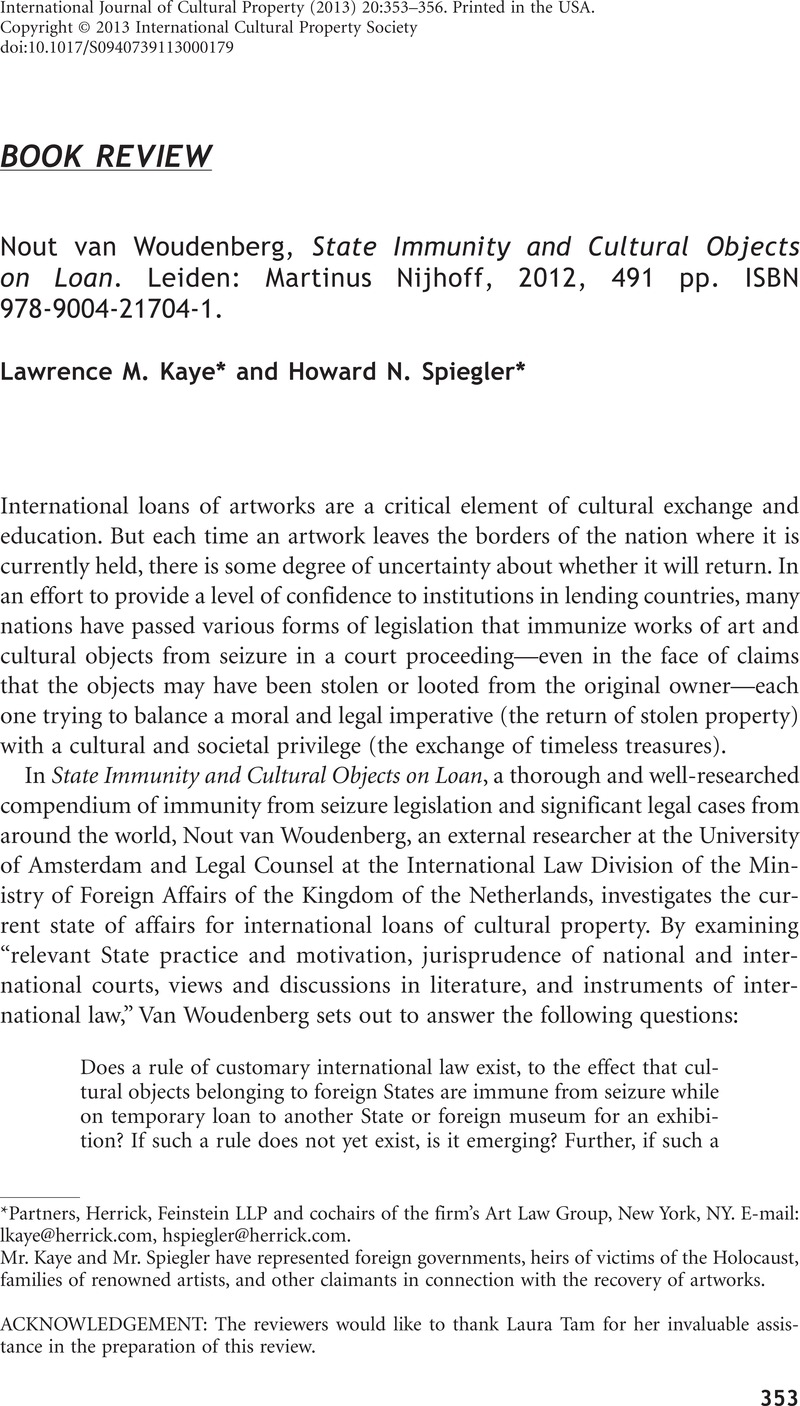No CrossRef data available.
Published online by Cambridge University Press: 16 December 2013

1. The cover of Van Woudenberg's book is graced by the haunting image of Egon Schiele's Portrait of Wally, the painting of his lover and favorite model, Wally Neuzil.
2. Immunity from seizure protects cultural objects that are imported to a foreign country for temporary exhibition from being seized or otherwise restrained pursuant to judicial process. Immunity from jurisdiction protects the defendant from being sued to recover the loaned artwork, regardless of whether seizure is permitted.
3. This was a key issue in Malewicz v. City of Amsterdam. While the artworks at issue were immune from judicial seizure, the court noted that “[i]mmunity from seizure is not immunity from suit for a declaration of rights or for damages arising from an alleged conversion,” if the other requirements for jurisdiction under the Foreign Sovereign Immunities Act have been met. 362 F. Supp. 2d 298, 312 (D.D.C. 2005).
4. In Malewicz, the court noted that “[i]n large measure, the terms ‘commercial’ and ‘sovereign’ are merely opposites: if an act is something only sovereigns do, it is not ‘commercial.’ Similarly, if an act is something that a private person or entity can do, it is not ‘sovereign’ … There is nothing ‘sovereign’ about the act of lending art pieces, even though the pieces themselves might belong to a sovereign.” 362 F. Supp. 2d at 313–14.
5. Restatement (Third) of Foreign Relations Law § 102(2) (1987).
6. Restatement (Third) of Foreign Relations Law § 102(2) (1987) at cmt. b.
7. As Van Woudenberg points out, some countries, such as Hungary and Egypt, have not enacted immunity from seizure legislation to protect cultural objects on loan.